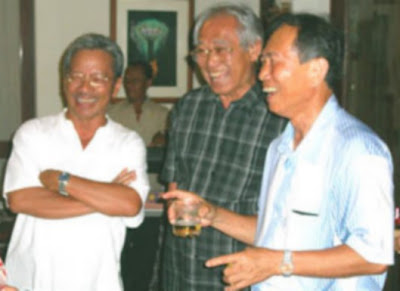To refresh everyone’s mind, several years ago, former deputy minister in the Prime Minister’s Department, Datuk M Kayveas caused a furore when he called the local authorities ‘secret societies’ for their lack of transparency and accountability. There was also corruption accusation hurled against the local authorities in Parliament then that corruption was widespread at all levels of the government. And in the State Legislative Assembly (DUN) sitting when it first sat right after the 2006 state election, the issue of local authorities was again brought to the centre stage when the opposition called for the reintroduction of local council election.
The local authorities have always been the centre stage in Malaysian politics as it is the local government which deals with the livelihood of people, thus creating a bearing or effects in mainstream politics. The local council election was abolished in 1970 after the eruption of racial riots in the aftermath of 1969 elections, giving rise to the perception that party politics if allowed to continue as the basis of local government would be against national interest as the government then was anxious to prevent the spread of further outbreaks of violence elsewhere. Since then, mayors and councillors are appointed by mentris besar and chief ministers where names are submitted through political parties for consideration.
Local authorities in Sarawak were established under the Local Authority Ordinance 1996 and the state Ministry of Environment and Public Health is responsible for overseeing the running of local councils. Over in the peninsula, the local authorities are governed Local Government Act 1976 which outlines the form, organisational structure, functions and responsibilities of a local authority. After so many years, the issue now is should local council elections be reintroduced and brought back to Malaysia’s political scene? There are of course many arguments on this issue depending on what one believes in.
An argument which is constantly voiced is that the current system of appointment of mayors and councillors has made the appointees responsible only to those who appointed them. That means to say they are only answerable to their political masters and not the people or the taxpayers. In this age where people have become sophisticated, well-read and well-travelled, this kind of arrangement may not go down well as what the people demand is transparency and accountability in the management of local authorities. To them, they want a say in the running of local authorities as whatever rulings or policies made by the local authorities would have impact on them and thus, the local council election would be a channel for them to elect representatives whom they feel serve them better. But on the other hand, many people would not know that serving councillors in state local councils are only paid allowances for meetings attended and the amount should not exceed RM350 a month.
Such a meagre sum has raised the concern that how many people out there are willing to sacrifice their time to serve in the local authorities to formulate policies knowing for sure that they could earn much more if they devote their time wholeheartedly to their professions or businesses. The amount and time spent in running the local authorities are tremendous as being councillors, people expect them to attend to their problems no matter how petty those problems, from clogged drains to tree trimmings. For those who strongly believe in the reintroduction of local council election, their argument may well centre on the ideals that the election would create transparency and accountability and that the councillors would be responsible for the people and not their political masters. Thus, whatever policies formulated in the local authorities are detected by the people since the councillors are now answerable to them. But again, a differing view is that to hold the local council elections may well eat too much into the government’s coffers and this may hamper the development effort as too much fund will be channelled to the holding of the elections.
In the end, a lot of development initiatives could not take off as funding from the government may be lacking and as such a lot of development initiatives may have to be stalled. Bringing back the local council elections will definitely give a sigh of relief to the serving MPs or assemblymen as they will be rid of the tedium of having to attend to the people’s many problems. MPs or assemblymen are supposed to be lawmakers drafting laws at the national or state level but their tasks have been significantly reduced to attending those problems which have greatly eaten into much precious time. With the reintroduction of local council elections, this will be the responsibility of councillors who have to answer to their electorates for their actions, inactions and other shortcomings.
Another foreseeable problem will be that by electing councillors to the local authorities, are these so-called rightfully or democratically elected representatives having the tendency to make populist policies despite knowing that such policies may not be beneficial in the long run, all in the name of securing their position? To many people out there who are fence sitters on the issue, the local council elections may not be their main concern as what they want to see is effectiveness and efficiency of the local authorities in dealing with people’s problems. Their only demand perhaps is for swift actions from the local authorities in settling their problems, be it clearing drains or fixing street lamps or trimming trees.
No doubt transparency and accountability must well be the mission of all local authorities to give the people the faith and confidence in them. Whether or not local council elections be reintroduced after so many years of abolishment is not yet known and this issue will definitely be one of the many issues to be raised in the local political scene. Whether or not the people are ready for local council elections, only they themselves could tell as at the end of the day, they are the ones who dictate how a country or a state should be run and what is good or bad for them.


 MAJOR RESHUFFLE COMING? Masing speaking to reporters after the function. At left is Yap.
MAJOR RESHUFFLE COMING? Masing speaking to reporters after the function. At left is Yap. 




 Dr. Masing, Tajem and Salang
Dr. Masing, Tajem and Salang

 Dr. Jemut Anak Masing
Dr. Jemut Anak Masing
